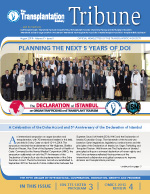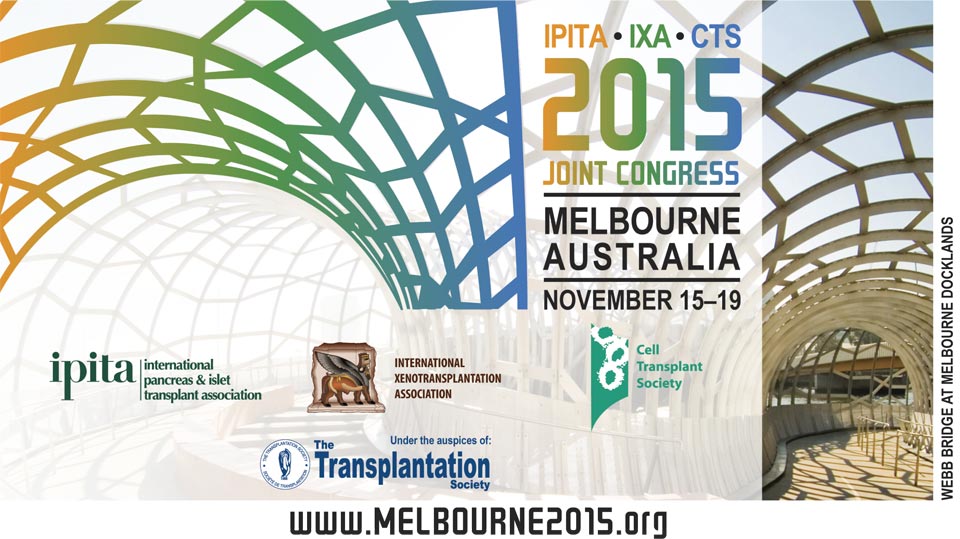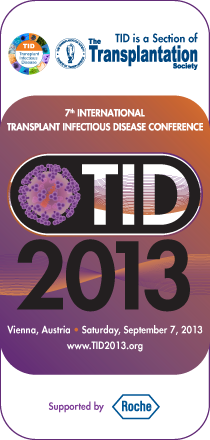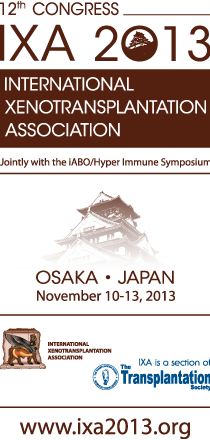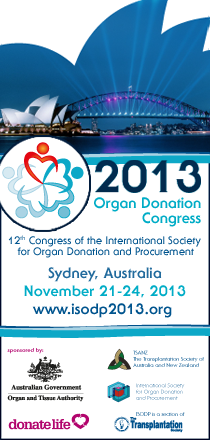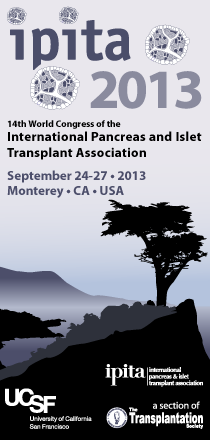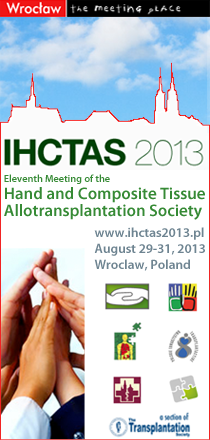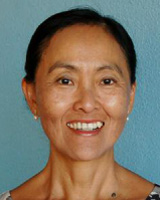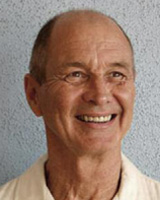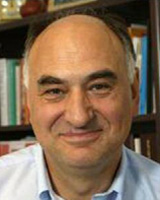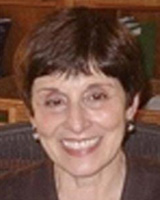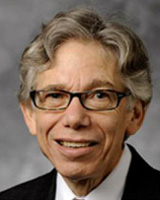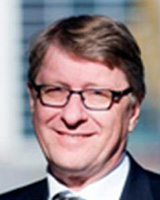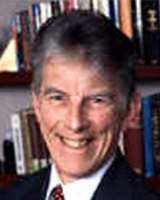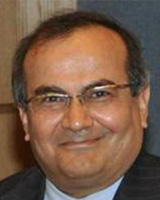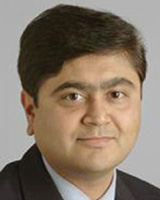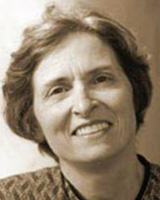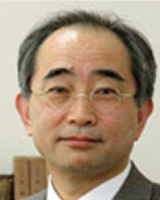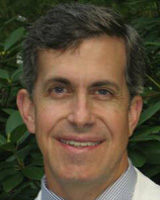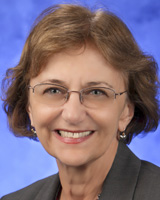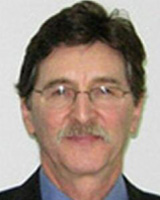Newsletter 2013 Volume 10 - Issue 2
The Transplant Infectious Disease section of The Transplantation Society would like to announce the results of the recent election and present the 2013–2015 TID Council:
- President: Deborah Marriott, Sydney, Australia
- President-Elect: Michele I. Morris, Miami, FL, USA
- Past President: Camille N. Kotton, Boston, MA, USA
- Secretary-Treasurer: Ligia Pierrotti, Sao Paulo, Brazil
- Councilors: Ban Hock Tan (Singapore), Clarisse Machado (Sao Paulo, Brazil), Nassim Kamar (Toulouse, France)
With the formal development of a council for TID, it is our hope the TID Section will continue to grow and find new ways to collaborate and connect with members of the transplant infectious disease community.
The 7th International Transplant Infectious Disease Conference will be held in advance of the ESOT 2013 Congress on September 7, 2013 in historic Vienna, Austria. The theme of the conference is “Cutting Edge Topics in Transplant Infectious Disease for the Transplant Clinician” and is aimed primarily at transplant clinicians with some expertise or interest in infections.
The objectives of the conference include:
- Initiating cutting-edge diagnostics and therapeutics in organ transplant recipients with viral, bacterial and fungal infections;
- Improving pre-transplant evaluation of both donors and recipients using optimal diagnostics new vaccine guidelines, and appropriate chemoprophylaxis;
- Understanding, identifying, diagnosing and treating emerging infectious diseases in transplant recipients;
- Navigating complicated cases with unusual and unexpected clinical dilemmas.
This one-day conference will give participants the opportunity to enjoy open and active discussions after the presentations, and networking among other attendees. For more information, please visit our website at www.tid2013.org.
We are happy to announce that the updated international guidelines on CMV management and solid organ transplantation from our meeting last October in Montréal, Canada, have been accepted for publication in Transplantation. We hope that the transplant community finds these updates clinically helpful in caring for patients.
It is our great pleasure to announce the 12th Congress of the International Xenotransplantation Association (IXA), which will be held jointly with the iABO/Hyper Immune Symposium in Osaka, Japan, November 10–13, 2013. The venue for the meeting will be the Osaka International Convention Center (GCO: Grand Cube Osaka) located in the center of Osaka. As a major cultural center, Osaka is the capital of the Kansai region, the western province of Japan. Located within an hour of Kyoto & Nara, it is home to the Osaka Castle, a major point of interest for tourists to Japan.
Designed with the help of 17 experts from 9 countries, the program of our joint meeting has been developed to promote a truly interdisciplinary exchange of scientific progress and concepts among investigators active in two different, but increasingly related and overlapping, fields. The program will thus provide an excellent forum for both clinical investigators and basic scientists with expertise in ABO-incompatible transplantation and xenotransplantation to meet and discuss innovative strategies for overcoming antibody-mediated rejection, organ shortage, and other obstacles.
Our plenary sessions will highlight:
- How can we overcome immune responses associated with presensitization?;
- Pre-clinical life-supporting xenotransplantation;
- Islet xenotransplantation: Are we ready for clinical islet xenotransplantation?
We will also hold two special keynote sessions in this joint congress:
- Dr. Shizuo Akira and Dr. Shimon Sakaguchi are invited for the IXA 2013 Keynote Lectures on Toll-Like Receptors and Regulatory T-cells in Transplantation;
- Dr. Keiichi Fukuda and Dr. Hiromitsu Nakauchi will be presenting their strategies of Xenotransplantation vs. Regenerative Technology and Medicine.
In these special sessions, we will learn innovative immunologic/regenerative approaches, which combined with xenotransplantation, will potentially lead us to the next strategies to overcome organ shortages.
To register for the meeting, please visit www.ixa2013.org and use the online system before September 20th to qualify for the early bird registration rate. We look forward to warmly welcoming you to Osaka and wish you a fruitful scientific Congress and a pleasant stay.
The ITA Council is pleased to announce the results of the 2013 election and welcome new Councilors to our 2013–2015 Council, please join us in congratulating all the members of the new Council:
- President: Douglas Farmer
- President-Elect: Debra Sudan
- Past President: Kareem Abu-Elmagd
- Secretary-Treasurer: George Mazariegos
- Councilors: Gabriel E. Gondolesi, Simon Horlsen, Florence Lacaille, Cal Matsumoto, David Mercer, and Robert Venick.
- Ad Hoc: Erin Fennelly (AHP) and David Grant (Registry)
The Council is looking forward to continuing the momentum of this section through the development of new committees focused on education and regulation, membership and science. The intention of these committees is to help lead the dialogue on important issues in the small bowel transplant community and encourage a more active participation and interaction with our membership.
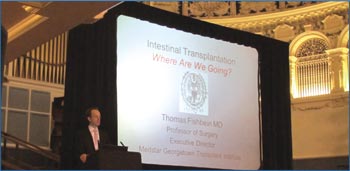 Lastly, the ITA would like to thank Peter Friend and Darius Mirza, Chairs of the recent ISBTS Symposium in Oxford, England, along with their colleagues on the Local Organizing and Scientific Programming Committees for their successful meeting in June. Colleagues from around the world converged at the historic University of Oxford for an exciting meeting that covered topics such as antibody screening, immunosuppression, cell therapy and allograft protection. As a member of ITA, you can access these presentations, and others from the ISBTS 2013, by visiting the ITA website at www.tts.org/ita. We thank everyone who attended and would like to especially congratulate Sara Clarke, recipient of the ITA AHP Outstanding Achievement Award, and all the winners of the TTS Young Investigator Travel awards.
Lastly, the ITA would like to thank Peter Friend and Darius Mirza, Chairs of the recent ISBTS Symposium in Oxford, England, along with their colleagues on the Local Organizing and Scientific Programming Committees for their successful meeting in June. Colleagues from around the world converged at the historic University of Oxford for an exciting meeting that covered topics such as antibody screening, immunosuppression, cell therapy and allograft protection. As a member of ITA, you can access these presentations, and others from the ISBTS 2013, by visiting the ITA website at www.tts.org/ita. We thank everyone who attended and would like to especially congratulate Sara Clarke, recipient of the ITA AHP Outstanding Achievement Award, and all the winners of the TTS Young Investigator Travel awards.
The International Society of Organ Donation and Procurement (ISODP), The Australian DonateLife Network and The Transplantation Society of Australia and New Zealand (TSANZ) are looking forward to hosting delegates in Sydney, Australia for the 12th Congress of the International Society of Organ Donation and Procurement from November 21–24, 2013.
The planned scientific and educational program will present issues, ideas and innovations in organ donation and procurement in meaningful, detailed and accessible way, to stimulate debate and discussion and to hear the best ideas from across the world. Topics such as Death Determination, Living Donors, Donations in Emerging Countries, Donor Transmitted Disease, Education and more will be presented. ISODP and TTS members receive reduced registration fees to attend this prominent Congress of experts in organ donation and procurement.
Built around the attractions of a working harbor, Sydney is the largest and most dynamic economy in Australia, with a highly skilled, multi-lingual workforce and exceptional quality of life. High-rise buildings of the central business district look across the water at green headlands of national parks and comfortable garden suburbs. To the west, the World Heritage Blue Mountains stand as a spectacular barrier to the inland, while the ever-changing moods of the Pacific Ocean dominate the beaches, which stretch for miles north and south from the forbidding cliffs of Sydney Heads.
We hope you will have the opportunity to discover Australia and especially Sydney, which you will find is one of the most friendly and popular places in the world to visit. If you are involved in organ donation, this is the one meeting you cannott afford to miss!
Over the past year, the Council of the International Pancreas and Islet Transplant Association has continued to work hard to develop initiatives that provide value to our members, improve and mature our organization, and enhance the fields of pancreas and islet transplantation worldwide. New initiatives include differential membership fees according to geographical region, the introduction of a Senior Advisory Committee, and plans for an Opinion Leaders Forum in 2014 to identify the key areas for research development in our fields. The highlight of the IPITA calendar however, is the biennial IPITA Congress. We are therefore, eagerly anticipating our 14th World Congress of the International Pancreas and Islet Transplant Association being held in Monterey, California from September 24–27, 2013.
The Congress is a joint venture between IPITA, TTS, and the University of California, San Francisco. Under the Chairmanship of Peter Stock, the Congress Program Committee has worked tirelessly to develop an outstanding program that addresses the key issues in the fields of whole pancreas and islet transplantation. Our plenary sessions involve a broad range of world-renowned invited speakers from around the world. Particular highlights include sessions on beta cell regeneration, immune strategies for beta cell therapy, and current challenges of whole pancreas transplantation, and a debate on beta-cell replacement versus insulin treatment from a diabetology perspective. We have omitted poster presentations from our Congress this year to increase the opportunity for more delegates to give oral presentations (oral, mini-oral, or rapid-fire). The Program includes two emphases that mirror the current Council's priorities, namely bringing the whole pancreas and islet transplant communities closer together, and encouraging young clinicians and young scientists to carry the baton forward for our fields. We also have included a specific session for Nurse Specialists. The Congress celebrates the 25th Anniversary of IPITA, and we are pleased that we will have the opportunity to honour some of IPITA's Founding Members during the Congress.
Monterey is a perfect setting for presenting and discussing good science, having opportunities to meet old and new colleagues, and taking time out of our busy schedules to relax in a breath-taking location. I do hope you will join us in Monterey for what is certain to be an excellent and memorable meeting.
International Hand and Composite Tissue Allotransplantation Society (IHCTAS) is a young society and the 11th Congress of the IHCTAS will enable specialists involved in hand and face transplantations or in other Composite Tissue Allografts (CTA)/Vascularized Composite Allografts (VCA) to meet and share their experiences. The program includes information on new transplantations and their outcomes, immunosuppression protocols and the latest experimental studies.
The meeting will be a platform to gather together the clinicians and researchers, as well as other members of their multi-disciplinary teams who perform these complex transplants. Join us in Wroclaw from August 29–31, 2013 and become member of the IHCTAS to help us grow this new field of transplantation!
In addition to the International Registry on Hand and Composite Tissue Allotransplantation, the IHCTAS wishes to create an open central resource of information about all CTA/VCA performed over the world and a basic contact point with members of other societies to share common scientific interests. Stay tuned to our website for more information on how to access the registry and other resources of the Society, www.tts.org/ihctas.
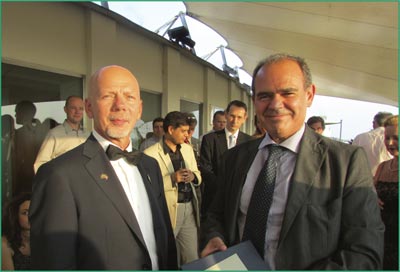
Past-President Stephen Strom and CTS 2013 Congress Chair Livio Luzi
at the President’s Dinner in Milan, Italy, in July 2013.
The Cell Transplant Society has been very active in the past few months and is pleased to announce the approval of several amendments to the Society’s bylaws, which now include a formal process for Council nominations and a timeline for Council elections. The revised bylaws are available to all members on the CTS website. As a result of the bylaws amendments, our first electronic election was held in June and CTS is pleased to announce the 2013-2015 Council:
- President: Maria Koulmanda
- President-Elect: Anil Dhawan
- Past-President and Secretary: Stephen Strom
- Treasurer: Johnny Huard
- Councilors: Ewa Ellis, Robert A. Fisher, Ira Fox, Kazuo Ohashi, Klearchos Papas, Terry B. Strom
The 12th International Congress of the Cell Transplant Society was held July 7–11, 2013 in Milan, Italy. The meeting brought together many delegates who had the opportunity to participate in many cutting-edge scientific sessions including plenary sessions on gene therapy and nanotechnology, and regulation of inflammation, tissue remodeling and regeneration. The Cell Transplant Society is extremely thankful to Livio Luzi, Federico Bertuzzi, Lorenzo Piemonti and all the members of the Local Organizing and Scientific Programme Committees for their hard work and dedication in planning this outstanding meeting of experts in the field of cell transplantation. Recordings of all the scientific sessions presented during the Congress will be available to CTS members through the CTS website. Visit www.tts.org/cts and login to access these materials today!
Don’t forget to mark your calendars for the next CTS meeting to be held in Melbourne, Australia, November 15–19, 2015. This will be a joint venture of the Cell Transplant Society, the International Pancreas and Islet Transplant Association and the International Xenotransplantation Association.
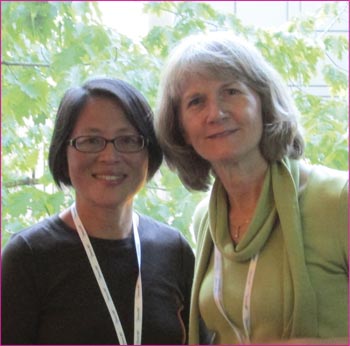
Dr. Sandy Feng, guest speaker, and Dr. Megan Sykes, moderator,
at the American Transplant Congress in Seattle, WA, in May 2013.
The Women in Transplantation (WIT) initiative is embarking on yet another year of spreading encouragement and mentorship for women in the field of transplantation. WIT recently hosted an event during the 7th Congress on Pediatric Transplantation held in Warsaw, Poland, by the International Pediatric Transplant Association, and during the American Transplant Congress in Seattle, WA. The presentations of Dr. Sandy Feng and Dr. Nancy Ascher are now available on our website if you were not able to attend these outstanding sessions. Upcoming events will take place at the European Society for Organ Transplantation Congress in Vienna, Austria, September 8–11; the 39th Annual Meeting of the American Society for Histocompatibility and Immunogenetics in Chicago, Illinois, November 17–21; and 12th Congress of the International Society of Organ Donation and Procurement in Sydney, Australia, November 21–24. We will continue to schedule concurrent events and receptions at future national and international conferences as we are happy to see that turnout and popularity has continued to grow. Please be on the lookout for future posts and invitations.
WIT has also continued its efforts in soliciting input from women about their experiences in this field with an online survey. Please visit our website at www.tts-wit.org to take part in the survey and to add yourself to our mailing list to stay up-to-date on upcoming events and opportunities.
Another effort being conducted by the committee is our mentoring program. We are currently re-polling mentors and mentees to develop ideas for improving this program. WIT is also reaching out to potential sponsors for support of this effort. Established in 2009 by Dr. Kathryn J. Wood, the WIT initiative has proven to be a necessary, successful and effective way to continue to integrate women, not only into the field of transplantation, but into the field of medicine as a whole.
As a follow-up to the Young Investigator Awards that were presented at the 24th International Congress in Berlin, the Tribune will be shining a spotlight on the awardees in this three-part series
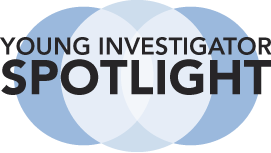
|
|
DR. MIWA MORITA was granted a Young Investigator Award for her research paper entitled “The Role of Graft Non-Hematopoietic Cells in Organ Transplant Tolerance”. For the past two years, she and her colleagues studied the underlying mechanisms of liver transplant tolerance in mice. They observed that the tolerance is dependent on expression of IFN-γ in the liver graft, and that the graft non-hematopoietic non-parenchymal cells play a critical role in regulating immune response through IFN-γ/B7-H1 signaling pathway. Under Dr. Lina Lu and Dr. Shiguang Qian’s mentorship, Dr. Morita’s research aims to determine the cellular and molecular mechanisms involved in liver transplant tolerance in order to ultimately implement clinical application strategies. Miwa received her Bachelor degree from Aichi University of Education, and Ph.D. degree of Immunology from Graduate School, Fujita Health University, Japan. She is currently in training as a postdoctoral research fellow in the Department of Immunology and General Surgery at the Cleveland Clinic. |
|
|
DR. NICOLAS POIRIER received the Young Investigator Award for his work on the preclinical evaluation of FR104 in humanized mice and primate transplant models. With his colleagues, he showed that FR104 is devoid of agonist activity on human cells and prevents acute GVHD in humanized mice in a CTLA-4 depend manner, suggesting higher therapeutic indexes compared to CD80/86 antagonists. FR104 has a long-lasting effect after a single administration in DTH primate model and a PK/PD profile compatible with clinical development. This novel agent inhibits efficiently acute rejection of kidney allografts in primates, where intragraft regulatory T cells were found accumulated, and synergizes with CNI-free or CNI-low regimens. Dr. Poirier earned his Ph.D in immunology from the University of Nantes (France) and mentored at the Institute for Transplantation/Urology and Nephrology under Prof. Blancho and Dr. Vanhove. His Ph.D thesis was particularly distinguished by the annual award of the French national journal ‘Le Monde’. Currently, he works as researcher at Effimune, with research interests in the identification, evaluation and development of novel therapeutic strategies to establish, break, modulate or reinforce immune regulation. |
|
|
DR. TOM ROGERSON is a Ph.D candidate at the University of Sydney under the supervision of Prof. Angela Webster. Tom’s research is focused on evaluating the performance of tests for latent tuberculosis in transplant recipients and establishing better epidemiological measures of tuberculosis in this population. Tom received his Bachelor of Science (majoring in Immunology and Pathology) in 2010 and completed a Masters of Science in Medicine (Clinical Epidemiology) in 2013. Last year Tom was awarded a Young Investigator award for his systematic review entitled: “Tests for Latent Tuberculosis in Potential Kidney Transplant Recipients.” Using data from existing studies and new methodology for the evaluation of tests without reference standards, Tom’s review showed that ELISA-based interferon gamma assays may be more accurate than the tuberculin skin test in candidates for kidney transplant. Currently, Tom is working on a series of related primary studies to confirm this finding, and systematic reviews to establish the evidence base for the epidemiology of tuberculosis in solid organ transplantation. |
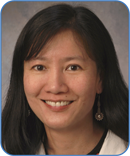
Anita Chong
Committee Chair
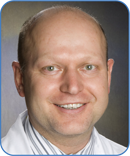
Stefan G. Tullius
Committee Co-Chair
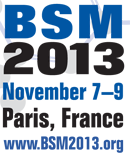 The 3rd ESOT Basic Science Meeting / 13th TTS Basic Science Symposium (BSM) is around the corner and Paris is anxiously waiting! The meeting will be held from 7th-9th of November 2013, and an outstanding line-up of invited speakers has been assembled. The abstract submission deadline for this meeting was July 15th and notifications were sent on August 28th. Please visit the website at www.BSM2013.org for more details.
The 3rd ESOT Basic Science Meeting / 13th TTS Basic Science Symposium (BSM) is around the corner and Paris is anxiously waiting! The meeting will be held from 7th-9th of November 2013, and an outstanding line-up of invited speakers has been assembled. The abstract submission deadline for this meeting was July 15th and notifications were sent on August 28th. Please visit the website at www.BSM2013.org for more details.
The Basic Science Committee continues to support young researchers with Mentor/Mentee awards. This year, we will award up to a total of 30 awards. We have been very fortunate to get the support of several national and international societies in co-sponsoring those awards: The Canadian Society of Transplantation, Société Francophone de Transplantation, TSANZ, ILTS and ISHLT are all co-sponsoring 4 awards; The Japan Society for Transplantation and Deutsche Transplantationsgesellschaft (DTG) co-sponsor 3 and 2 awards, respectively. Moreover, The Transplantation Society sponsors 5 additional awards. We are extremely grateful to the partnering societies for these efforts!
As with previous Basic Science meetings, we plan on having a networking event in Paris during which the Mentor/Mentee grants will be awarded. To emphasize the spirit of this award, we ask that both mentor and mentee to be present at this event.
We are all looking forward to this outstanding Basic Science Meeting in the excitingly beautiful city of Paris.
Be part of the basic science in-crowd and join us in Paris!

Elmi Muller
Committee Chair

Medhat Askar
Committee Co-Chair
Academy Course Director
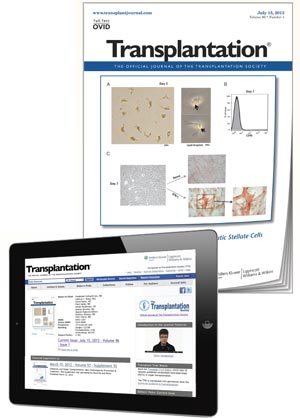
TTS Education Committee is working together with the editors of the journal Transplantation to provide a regular update on current literature publications in the field of basic science as well as clinical transplantation. Since the beginning of 2013, many important topics have been highlighted, including articles on tolerance, HLA antibodies, updates on immunosuppression, as well as other clinically relevant articles such as outcomes after using expanded criteria donors and prolonged cold ischaemic time. By reading these summaries, members should be able to get some information about recent work that was published in the field that might be of interest to them. As a new venture, the Education Committee wants to add a section on meeting highlights in the next six months—hopefully this will point out some cutting-edge topics presented at our congresses. The Education Committee is constantly working to improve education for our members in both the developed and developing world.
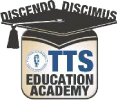
TTS Educational Academy
Distinguished Educator
Certificate Program
Wolters Kluwer Health Medical Research and The Transplantation Society (TTS) are currently inviting nominations and applications for the position of Editor-in-Chief of the journal, Transplantation, for a five-year term, ending December 31, 2019. The Editor-in-Chief is responsible for oversight of each journal issue, all supplements, and the journal website. The Editor works remotely from TTS offices and the publisher. The transition will begin June 1, 2014, with full responsibility on January 1, 2015.
In addition to being a TTS Member, candidates must hold a MD and/or PhD degree or equivalent and should hold an ongoing clinical practice and/or academic position. Candidates must be acknowledged experts and thought-leaders in transplantation and members of leading professional societies in the field of transplantation. Candidates must have considerable authoring and editing experience in prominent, peer-reviewed journals and should have experience as active members and peer-reviewers on Editorial Boards of journals in the field, including Transplantation, with a proven track record for excellence and timeliness. Candidates must possess excellent communication, organizational and interpersonal skills, and a wide network of professional contacts. Candidates must be able to meet the time demands of the Editor-in-Chief position.
Each year for the past 4 years, The Transplantation Society has run a winter scientific meeting examining the cutting edge of technology at the interface of “Omics” and biomarker development. This year the meeting was held in Cambridge, England. The program was developed by the Medical Research Council Transplant program under the leadership of Professor Steven Sacks (London) and examined the application of the genomics, proteomics and metabolomics technologies to problems in clinical transplantation. Dr. Randy Morris (California) spoke about the evolving world of patents and the laws of nature versus innovation and discovery so critical to understanding the pathway for application of knowledge to patients. A series of truly innovative minds displayed the potential power of these technologies to uncover biological phenomena. Understanding a little more of: the roles of Complement in HUS and genetically programmed recurrent renal disease; ‘GWAS’ in renal disease; genetics and autoimmunity; the evolving understanding of signatures of tolerance; the power of genomics in predicting ischaemic damage; genomics and acute rejection; and the list goes on. Delegates from 18 countries and speakers from 12 enjoyed the science and the location.
This symposium series is designed to be an informal meeting with a wide diversity of people with interests in technology development, application of that technology to transplantation, commercial development and regulation. The flavour of the meeting, and more importantly, the substance of the best talks can be found by TTS members online at via the Education Portal on the TTS website.
The conference recordings have been posted!
www.transplantomics.org
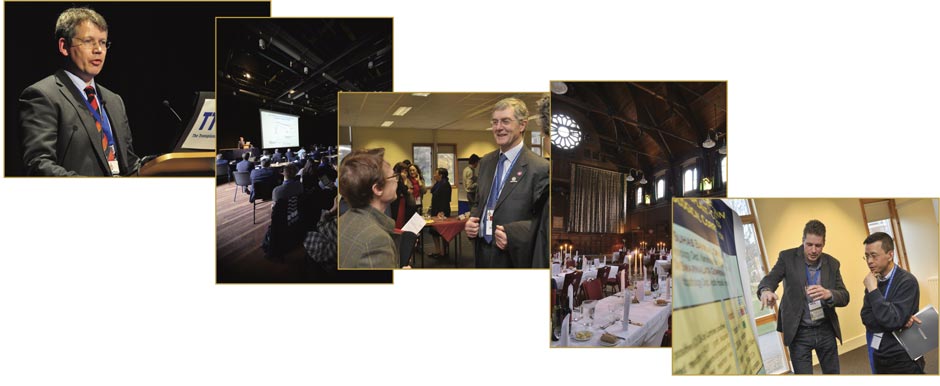
Creating new kidney transplant centers and developing existing kidney transplant programs in emerging countries
The Transplantation Society and the International Society of Nephrology have been developing an ever-closer collaboration over the past 5 years. The Declaration of Istanbul in 2008 was our first major joint project. The latest collaboration is the ISN-TTS Sister Centres Program. ISN has initiated a successful sister centre relationship program that is part of the ISN Global Outreach strategy to develop nephrology broadly throughout the world. TTS and ISN have agreed to jointly fund an extension of this program to add focus on transplant sister centre relationships. The program has three components or types of sister centre relationship: Level C provides a small amount of money to facilitate the development of a plan of collaboration between two centres—one of which will be a well established renal transplant centre and the other will be less well experienced. The ISN-TTS money is to help the centres plan how they can best work together to develop the transplant program—probably through one or two visits between the centres. Level B provides more money and is based on the development of a practical plan for collaboration while at Level A. The Level B programs provide funding for a series of planned programs of collaboration between the centres. The top Level A sister centre funding is provided for those centres with a strong and multi-faceted relationship that will result in a long term and independent relationship between the centres based on mutual expertise and interests. Additional bonuses come with a funded sister centre relationship, such as a level of priority for other grants such as the ISN Fellowships or TTS Young Investigator awards.
The inaugural round of applications took place earlier this year, attracting a large amount of interest. The hard decisions were made during the World Congress of Nephrology in Hong Kong and the decisions of the applications are being sent as this article is being written. For those who missed out, and for those that found the deadline too tight, we are running what will be the normal annual cycle of applications in July/August for funding in 2014—look for the e-blast to members from both ISN and TTS. The directors of the centres that apply do have to be either a member of ISN or TTS (but not necessarily both).
Details and news of this growing program will be posted on both the ISN (www.theisn.org) and TTS (www.tts.org) websites.
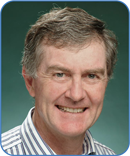
Following the elections that closed on April 30, 2013, we are pleased to announce that Dr. Philip O'Connell has been elected TTS President (2014 through 2016).
Dr. O'Connell will also serve as President-Elect for 1 year, from the time of TTS Council Retreat in June 2013, and transition to his Presidency at the World Transplant Congress 2014 (business meeting of TTS, July 2014) in San Francisco.
Please join TTS Council in congratulating Dr. O'Connell.
We also wish to thank Drs. Elmi Muller and Felix Cantarovich for enabling their names to be put forward in nomination. Dr. Cantarovich's contribution to Education on Organ Donation, and Dr. Muller's ongoing commitment and leadership as Chair of the Education Committee, our journal Transplantation and her role as Councilor for the Africa and Middle-East Region greatly contribute to achieving TTS mission.
Francis L. Delmonico
on behalf of TTS Council
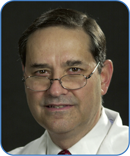
Francis L. Delmonico
TTS President
TTS has become the pre- eminent professional society in the conduct of international policy and practice of organ donation and transplantation throughout the world. Thus, the celebration of the Declaration of Istanbul (DoI) in Doha, Qatar, was an appropriate acknowledgement of that association between TTS and DoI. The logo of TTS and the co-sponsor of the DoI—the International Society of Nephrology—is on display at each event that the DoI is engaged. The link to international policy development is also now established by the formal association of TTS with the World Health Organization for which TTS is the NGO in official relation. The transition from the development of the principles and proposals of the DoI to the drafting of the Guiding Principles of the WHO and subsequent endorsement of the World Health Assembly Resolution in May 2010, was orchestrated by the WHO in partnership with the DoI. TTS through the DoI is now aligned with the WHO to achieve a national self-sufficiency in organ donation and transplantation. Also in 2010, TTS was co-recipient of the Prince of Asturias award for collaborating with the National Organization of Transplantation of Spain (ONT) in “establishing medical and ethical principles governing the clinical care and scientific research of organ transplantation” recognizing the contribution of the DoI to that effort.
The Declaration of Istanbul Custodian Group
The leaders of TTS and ISN have established the Declaration of Istanbul Custodian Group (DICG), comprised of representatives from the two organizations and other committed individuals, to promote the principles and to achieve the goals of the Declaration.
Much progress has been achieved by the DICG in implementing the principles of the DoI and ending unethical and exploitative transplant practices. The work of the DICG has helped countries to adopt and implement better policies and has engendered activity in other organizations to gain not only broad international acceptance among transplant professionals to combat transplant tourism, commercialism, and trafficking but also a commitment to develop an ethically proper program of deceased donation throughout the world.
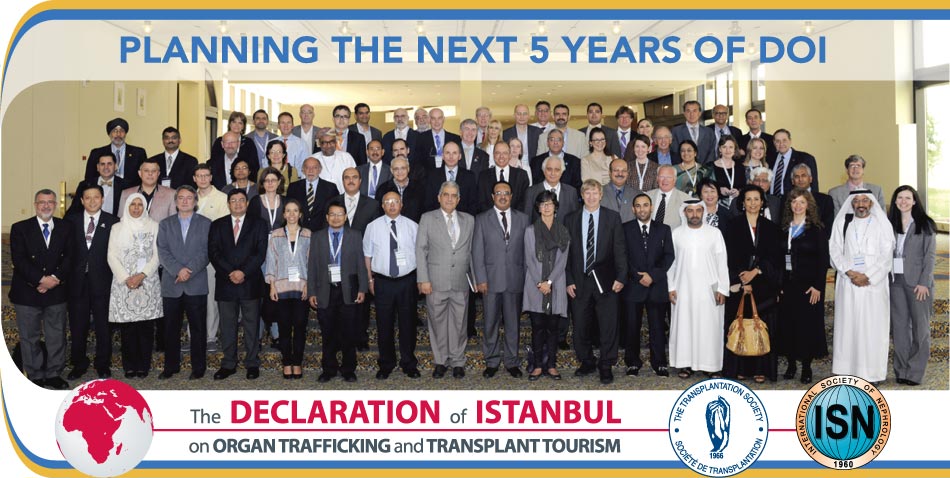
A Celebration of the Doha Accord and 5th Anniversary of the Declaration of Istanbul
An international symposium on organ donation and transplantation, with 70 international leaders in this field, was held in Doha, Qatar on April 12–14, 2013. The symposium received the endorsement of Her Highness, Sheikha Moza bint Nasser, Vice Chair of the Supreme Council of Health of Qatar. Convened by the Hamad Medical Corporation (HMC), the symposium celebrated not only the 5th Anniversary of the Declaration of Istanbul but also the implementation of the Doha Donation Accord. The Doha Donation Accord was established in September 2010 as the result of close collaboration between the Supreme Council of Health (SCH), HMC and the Declaration of Istanbul Custodian Group. The framework of the Accord was based on Qatari regulations, legislations, national norms and the principles of the Declaration of Istanbul on Organ Trafficking and Transplant Tourism. Well known are The Declaration of Istanbul principles built upon a universal declaration of human rights, and this Doha conference reflected the importance of the international collaboration and global consensus to improve donation and transplantation practices.
The participants at the Symposium developed a communiqué that embraced the following goals to be accomplished in ensuing years before the 10th Declaration of Istanbul Anniversary:
- To re-affirm the Principles of the Declaration of Istanbul, which condemn transplant commercialism, organ trafficking, and transplant tourism, and to underline the urgency of putting the Principles into action in all settings where transplantation occurs.
- To urge all member states of the World Health Organization to adopt laws, regulations and practices consistent with World Health Assembly Resolution 63.22 and the Declaration of Istanbul, and in particular to enforce an end to transplant tourism and the use of executed prisoners as a source of organs for transplantation.
- To develop and disseminate descriptions of the technical and organizational features of sustainable programs and systems that can be implemented in different countries to promote national self-sufficiency in organ transplantation, as elaborated in the Madrid Resolution in 2010, especially through the development of deceased donation and equitable regional cooperative arrangements.
- To elaborate ethical approaches to acknowledging the generosity and humanity of donors and families in deceased organ donation programs.
- To develop, and recommend implementation of, systematic ways for physicians to identify and report to appropriate registries (in a quantifiable but non-judgmental manner) patients returning with a donor organ from an “unverifiable source” or manifesting other indications of a vended organ.
- To cooperate with organizations that are examining the common and overarching issues in the procurement and medical use of all products of human origin.
- To participate actively in the monitoring mechanisms of the Council of Europe Convention on Action against trafficking in human beings as it relates to human trafficking for organ removal (HTOR) and the Draft Convention against trafficking in human organs (THO).
- To develop means of communicating with and educating law enforcement authorities, as well as with human rights monitoring organizations, regarding HTOR and THO.
- To support adoption of a uniform coding system to improve traceability and vigilance for human organs.
- To assist the preparation and publication of a report.
Contact
Address
The Transplantation Society
International Headquarters
740 Notre-Dame Ouest
Suite 1245
Montréal, QC, H3C 3X6
Canada
Используйте Вавада казино для игры с бонусом — активируйте промокод и начните выигрывать уже сегодня!

